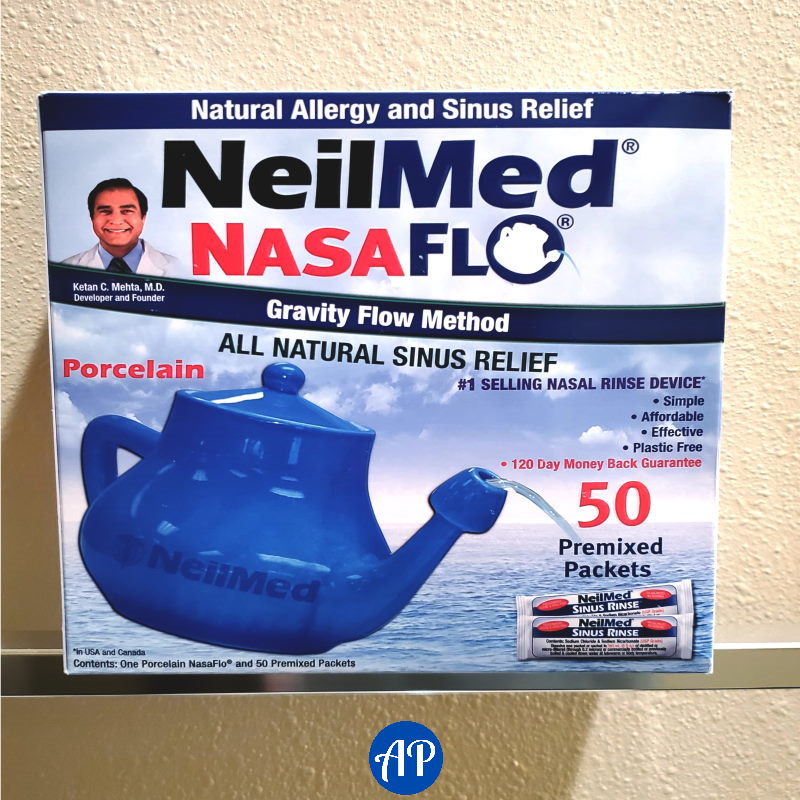If you suffer from pollen allergies, you know how disruptive they can be to your daily life. From sneezing fits to itchy eyes, the symptoms can range from annoying to downright debilitating. While traditional treatments like medications and allergy shots can provide relief, many people seek out natural pollen remedies to alleviate their symptoms.
In this article, we’ll explore some effective natural pollen remedies for you to try. Through my personal experience, some of these remedies work better than others. Additionally, what does not work for me, might work amazingly for you!

Table of Contents
Causes of Pollen Allergies
Pollen allergies happen when our immune systems overreact to pollen particles from plants like trees, grasses, and weeds. These tiny grains are usually harmless, but for some folks, their immune system sees them as invaders and launches a defense, causing allergy symptoms like sneezing, itching, and congestion.
It’s like our body’s defense system getting a little too sensitive to nature’s way of spreading plant love!
Why choose natural pollen allergy Remedies?

Opting for natural pollen allergy remedies comes with a bunch of perks that many find appealing. For starters, they usually don’t bring along as many pesky side effects as traditional meds, which can be a big relief for anyone worried about unexpected reactions.
Natural pollen allergy remedies often aim to get to the root of the allergy issue instead of just covering up the symptoms. Things like local honey, quercetin, and stinging nettle have properties that can help calm down those annoying allergic reactions.
And let’s not forget, natural pollen allergy remedies often come with extra health boosts too, so you’re not just treating allergies—you’re boosting your overall well-being.
By going the natural route, you’re taking a proactive step toward managing your pollen allergies while keeping the pill-popping to a minimum. For me, I only need to take an antihistamine occasionally, and I have been able to stop the prescription allergy medications!
Natural Pollen Allergy Remedies List
Whether you’re looking for alternatives to conventional medications or simply seeking to enhance your seasonal allergy management routine, this list has got you covered with a range of effective and natural solutions.
Acupuncture

Acupuncture involves the insertion of thin needles into specific points on the body to promote healing and alleviate symptoms. Some people find acupuncture helpful for reducing allergy symptoms and improving overall well-being.
It’s essential to note that while many people report positive experiences with acupuncture for allergies, scientific evidence supporting its effectiveness is mixed.
Air Purifiers to Trap Pollen

Air purifiers can be valuable tools for allergy sufferers seeking relief from indoor allergens and airborne irritants. By removing pollen and other particles from the air, air purifiers create a cleaner and healthier indoor environment, promoting better respiratory health and overall well-being.
My family and I are no strangers to air purifiers, we use the Winix 5500-2 (full review), for large areas, and the Levoit Core Mini for each one of our bedrooms. Since most of us suffer from outdoor and indoor allergies, an air purifier was a no-brainer.
Butterbur Extract to Lower Histamine Naturally

Butterbur is a plant native to Europe and Asia that has been used for centuries to treat allergies and migraines. Studies have shown that butterbur extract may help relieve allergy symptoms by reducing inflammation and inhibiting the release of histamines.
Less histamine release in the body leads to fewer reactions to allergens, like pollen. Go for a high-quality butterbur extract to get the best results.
Dietary Changes

Incorporating anti-inflammatory foods such as fatty fish, leafy greens, and berries into your diet may help reduce inflammation and ease allergy symptoms. By helping your immune system calm down, you are reducing allergy symptoms.
Avoiding Pollen Allergy Trigger Foods
Some foods, such as dairy, gluten, and processed sugars, may exacerbate allergy symptoms by increasing inflammation and mucus production. Avoiding these trigger foods may help alleviate symptoms.
Natural Essential Oil Pollen Remedies

Essential oils have gained popularity for their potential therapeutic effects, including their ability to alleviate allergy symptoms. Here is a list of essential oils that help remedy allergy symptoms naturally:
- Eucalyptus Oil: A natural decongestant that can help clear nasal passages and relieve sinus congestion caused by allergies.
- Lavender Oil: Anti-inflammatory and calming properties that may help reduce allergic reactions and promote relaxation.
- Peppermint Oil: Natural antihistamine properties and may help alleviate allergy symptoms when diffused or applied topically.
Ensure you read up on essential oils, as they are not created equally, and certain oils can be harmful to pets and children if not used properly.
Herbal Tea Natural Pollen Allergy Remedy

Drinking herbal teas made from ingredients such as ginger, chamomile, and nettle may help reduce inflammation and provide relief from allergy symptoms. However, it’s essential to choose herbal teas carefully, opting for organic varieties and avoiding any herbs that may trigger allergic reactions in sensitive individuals.
For example, I cannot drink chamomile with my allergies. Chamomile tea causes my allergy symptoms to become a bit worse. My throat becomes itchy, and my nose begins to run.
Local Honey

Local honey is often praised as a natural solution for allergies because it may help the body become less sensitive to local allergens. The idea is that by consuming small amounts of honey produced from local plants, which contain traces of pollen, the body can gradually develop a tolerance to these allergens.
This process exposes the immune system to small doses of allergens, potentially leading to a reduced reaction over time and fewer allergy symptoms like sneezing, runny nose, and itchy eyes.
While some people claim to find relief from allergies through regular consumption of local honey, scientific evidence supporting its effectiveness is limited and inconsistent.
Managing Stress

Stress can weaken the immune system and exacerbate allergy symptoms. Finding healthy ways to manage stress, such as meditation or yoga, may help reduce allergy symptoms. Practicing relaxation techniques such as deep breathing or progressive muscle relaxation can help reduce stress levels and alleviate allergy symptoms.
Nasal Saline Rinse Naturally Removes Pollen Allergens

Using a nasal saline rinse can help clear pollen and other allergens from the nasal passages, providing temporary relief from congestion and sinus pressure. Saline rinses are available over the counter or can be made at home using a mixture of salt and water.
My favorite is the Neti Pot. The kit comes with everything you need to conduct your nasal rinse, and the results are great. You are sticking fluid in your nose which some people cannot handle.
If you can get past the thought of liquid in your nose you will love your Neti Pot. And don’t worry, when done properly it is satisfying and it does not burn.
Omega-3 Fatty Acids

Omega-3 fatty acids, found in foods like fish, flaxseeds, chia seeds, and walnuts, could help manage pollen allergies naturally. These healthy fats are known for their anti-inflammatory properties, which might calm down the body’s reaction to allergens.
Some studies suggest that omega-3s could lessen allergy symptoms like stuffy noses and itching by reducing inflammation. They might also boost lung health, which is great news for allergy sufferers, especially those with asthma.
While we still need more research, adding omega-3-rich foods to your diet could be a tasty way to help deal with allergies and feel better overall.
Probiotics

Probiotics, those friendly bacteria found in yogurt, kefir, and other fermented foods, could offer a helping hand in managing pollen allergies. These little helpers are known for their ability to balance our gut health and strengthen the immune system.
Some studies suggest that probiotics might reduce the severity of allergy symptoms by promoting a healthy immune response. By keeping our gut happy and in balance, probiotics might help our bodies better tolerate pollen and other allergens.
While more research is needed to fully understand the benefits, incorporating probiotic-rich foods into your diet could be a tasty way to support your body in dealing with pollen allergies.
Quercetin Supplements Naturally Calm Pollen Allergies

Let’s talk about quercetin, a natural compound found in foods like apples, onions, and citrus fruits, which could be a game-changer for managing pollen allergies. This powerful antioxidant has been shown to have anti-inflammatory properties, helping to calm down the body’s reaction to allergens like pollen.
Some research suggests that quercetin might block the release of histamines, those pesky chemicals that trigger allergy symptoms like sneezing and itching.
By incorporating quercetin-rich foods into your diet or trying a quercetin supplement, you might find some relief from pollen allergy symptoms.
It’s like giving your body a little extra support to handle those seasonal sniffles in a natural and friendly way.
Showering After Outdoor Activities

Consider showering after spending time outdoors. When you’re out and about, pollen can stick to your skin and hair, triggering those annoying allergy symptoms when you come back inside. Taking a quick shower helps wash away any lingering pollen, reducing your exposure and giving you some much-needed relief.
Steam Inhalation
If pollen allergies are getting you down, why not give steam inhalation a try? It’s a super easy and soothing way to ease those pesky symptoms. Simply fill a bowl with hot water, lean over it, and cover your head with a towel to trap the steam.
Take slow, deep breaths, letting the warm steam work its magic to clear your sinuses and soothe irritated nasal passages. You can even add a drop or two of essential oils like eucalyptus or peppermint for an extra boost.
Vitamin C Allivaties Pollen Allergies Naturally

If pollen allergies are putting a damper on your day, consider adding some extra vitamin C to your routine. This powerful antioxidant not only supports a healthy immune system but could also help alleviate allergy symptoms. Vitamin C has been shown to have natural antihistamine properties, which means it could help reduce those annoying sneezes and sniffles caused by pollen.
Plus, it’s super easy to incorporate into your diet – just snack on some citrus fruits like oranges or grapefruits, munch on bell peppers, or sip on a refreshing glass of lemon water.
Combining Pollen Allergy Remedies for Better Results
These natural pollen allergy remedies can complement other allergy management strategies and provide relief for pollen allergy sufferers without the need for medication. Experiment with different natural remedies and lifestyle modifications to find the right combination that works best for you.
However, it’s essential to consult with a healthcare provider before trying any new treatment, especially if you have severe allergies or underlying health conditions.
What Natural Pollen Allergy Remedies Work for Me

The best natural pollen allergy remedies that work for me right now are the air purifier, nasal rinse, and showering after being outside. I swear the best purchase we made was the air purifier, the whole family saw a difference. The second best purchase was the Neti Pot. The third best remedy is the showers, I instantly feel better once I know I have rinsed off all the “nature”.
